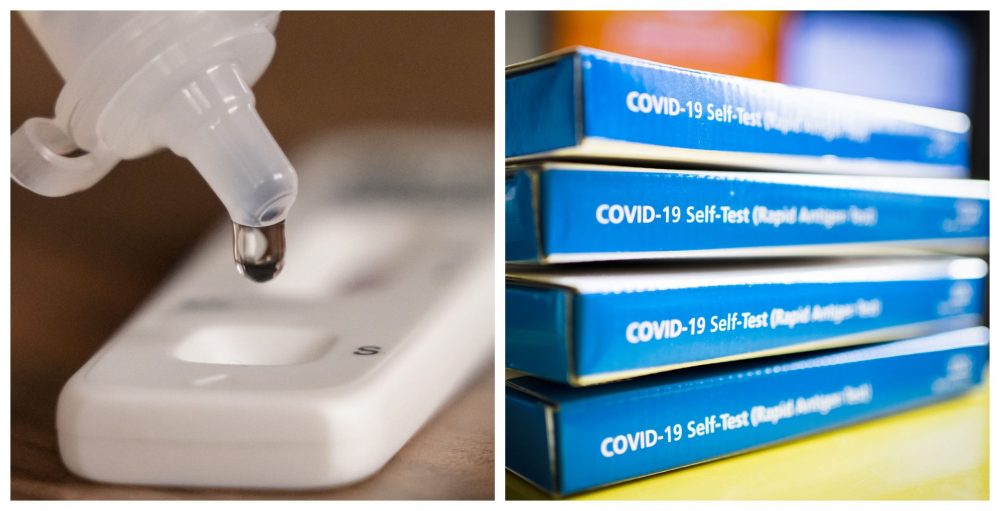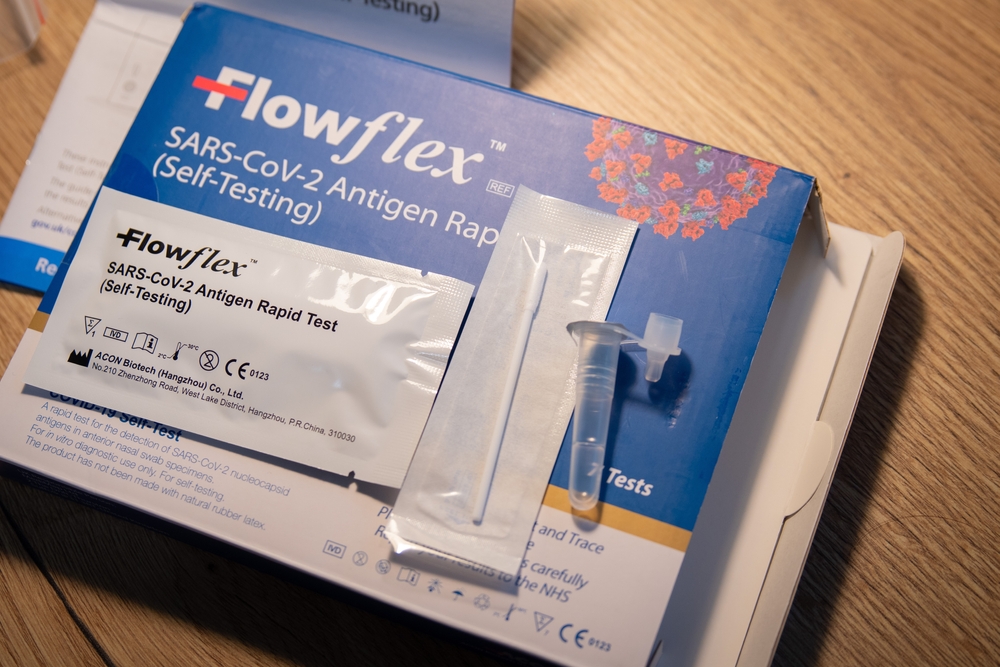
Coronavirus
Questions answered on what you can do now that access to free covid tests has ended
3 years ago

Free Covid tests for everyone in England has ended and now people may be wondering what they can do if they have Covid.
Some people may still be eligible for free tests.
Your questions answered on the future of the testing programme.
Can I still get free tests?
The majority of people in England will no longer be eligible for free Covid-19 tests from April 1.

Picture – PA
The Government has set out the groups who will still be eligible for free testing when they have symptoms of the virus, these include some hospital patients, some people at high risk of severe Covid and some who live or work in “high risk settings” including some NHS and social care settings or prisons.
While there are still high rates of the virus in the community, health and social care staff will still be able to get access to free tests, even when they don’t have symptoms.
What about people who live in care homes and hospices?
Routine tests for care home and hospice residents will no longer continue and will only be provided in the event of an outbreak or a resident being admitted.
From 1 April, free #COVID19 testing will be available for people with symptoms if they are:
▶️ patients in hospital
▶️ eligible for treatments because they are at higher risk of getting seriously ill
▶️ living or working in high-risk settings such as care homes or the NHS
— Department of Health and Social Care (@DHSCgovuk) March 29, 2022
Why has the Government decided to stop free tests?
The short answer? Money.
The Department of Health and Social Care said testing has come at a “significant cost” to the taxpayer, with the testing, tracing and isolation budget costing more than £15.7 billion in 2021/22.
It said that testing can also be reduced thanks to the protection afforded to the population through vaccination and the use of antiviral medication.
So I do not need to keep testing?
Ministers have said that most people no longer need to take lateral flow tests. This includes visitors to hospitals and care homes.
But if I want to keep testing I can still buy them?
Sure, they start at around £2 a test, if you buy a pack.

What do I do if I get Covid?
People who have a positive Covid-19 test in England will be advised to try to stay at home and avoid contact with other people for five days, which is when they are most infectious.
Those who are positive, or have symptoms, and need to leave home will be urged to wear masks, avoid crowded places and stay away from people with weakened immune systems.
What about if I feel generally unwell and I’m not sure if it’s Covid?
The new advice is that people should try and stay at home until they feel better.
Those who have a symptoms of a respiratory illness such as a high temperature or “who feel unwell” are being encouraged to stay home until they feel well enough to resume normal activities or when their temperature has subsided, the Department said on Tuesday.

Credit: PA
What about children going to school?
The Government is going to advise that children and young people who are unwell and have a high temperature should “stay at home and avoid contact with other people, where they can” and that “they can go back to school, college or childcare when they no longer have a high temperature, and they are well enough to attend”.
But don’t we need tests to monitor new variants?
Yes, but probably not at the current level of testing.
The Office for National Statistics’ flagship Covid-19 Infection Survey is to continue for the next year – albeit at a reduced level. And other infection monitoring studies will also continue.
What if there is a sudden wave of a new variant that is more deadly?
Ministers have reserved the right to stand up testing capacity again in the event of a new variant, this includes keeping a stockpile of lateral flow tests.

What risks does reducing testing carry?
The Government’s chief scientific adviser was asked this question on Wednesday. Sir Patrick Vallance told MPs that a reduction in testing will lead to a “decrease in precautionary behaviours” which could drive up transmission of the virus.
He told the Science and Technology Committee of MPs: “Testing in effect does three things: it is very important for surveillance; it enables precautionary behaviour and it’s useful to protect those who are most vulnerable.”
Are people happy about it?
Some charities representing people at risk of Covid have raised concerns about taking away frequent testing for vulnerable people without symptoms. They said that testing has become a way which has enabled some people to return to their normal lives, despite being concerned abut the virus.









 Subscribe
Subscribe Follow Us
Follow Us Follow Us
Follow Us Follow Us
Follow Us Follow Us
Follow Us Follow Us
Follow Us











